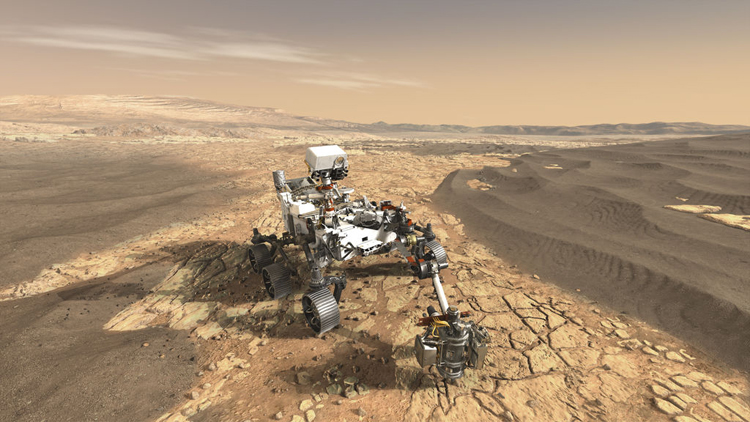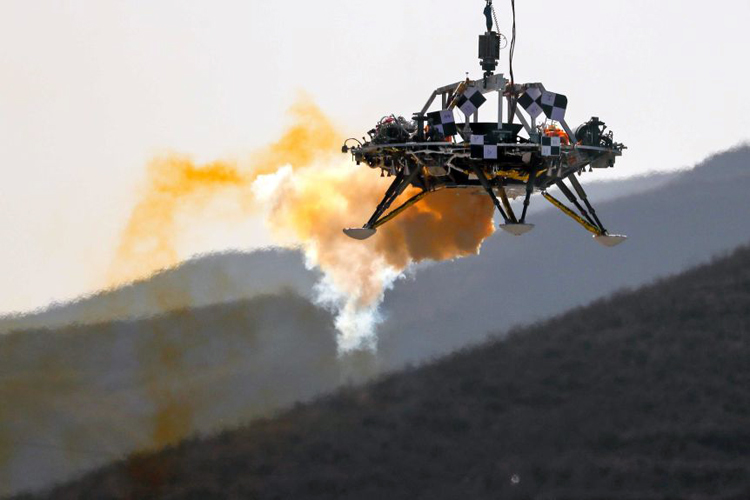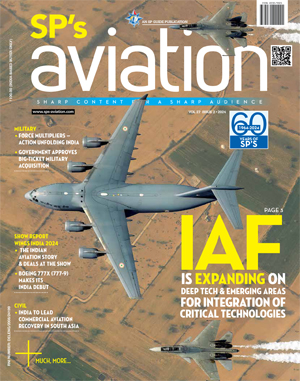INDIAN ARMED FORCES CHIEFS ON
OUR RELENTLESS AND FOCUSED PUBLISHING EFFORTS

SP Guide Publications puts forth a well compiled articulation of issues, pursuits and accomplishments of the Indian Army, over the years

I am confident that SP Guide Publications would continue to inform, inspire and influence.

My compliments to SP Guide Publications for informative and credible reportage on contemporary aerospace issues over the past six decades.
FIA Connect

Coming together for space exploration & larger societal goals
The constant curiosity to unravel the secrets of the space beyond earth is not just a fascination move but holds long-term technological as well as economic benefits.

The Red Planet has been the object of attention and ambition for quite some time now for space explorers. With three Mars missions lined up for this summer by the USA (United States of America), UAE (United Arab Emirates), and China, there’s a lot of curiosity surrounding the Red Planet. But what is it about Mars that is captivating so much attention? “One of the main reason is that Mars has a system very close to the earth which will help us in understanding our own planet better. Second is the technological development as the technologies being created for this exploration will certainly be of use in the future and thirdly the curiosity that drives human kind as space initiates fascination which further makes way for positive inspiration. Apart from all this, Mars is special because we are looking for a possibility of life there,” said Jan Wörner Director General ESA (European Space Agency) in an online FIA Connect conference session titled ‘Why Mars: the out-of-this-world benefits of space exploration’.
The panelists in the session also highlighted that missions like this are significant as they generate not just fascination but also business and hence create jobs. They also pointed out that Mars has a fairly short launch window because Mars and earth have rotational period around the sun that does not match but they come together every 2 years so that jump with any mission is to be made when the two planets are closest to each other which is also why we have three missions lined right now.
They also pointed out that Mars has a fairly short launch window because Mars and earth have rotational period around the sun that does not match but they come together every 2 years so that jump with any mission is to be made when the two planets are closest to each other which is also why we have three missions lined right now.

Also mission like this one encourage collaboration which is highly significant. The panelists talked about the need to concentrate on trying to internationalise projects at government level where cooperation is needed because space is for everyone and there is not resource in just one nation state. “A mission like that of Mars represents planetary expeditionary goal that requires a global cooperation especially if we are planning to take people to Mars. Even private and public sector should come together and treat this as an expedition to humanity,” Will Whitehorn, UK space President.
The panelists also put light on how space has benefits that are not just technological and visionary but also economic and societal. Jan from ESA added that according to their evaluation about the commercial effect of space, it was found that space has an effect of one to six, meaning 1 pound invested leads to 6 pounds returned; even in exploration the direct return of investment is one to two meaning one euro or pound invested brings double benefits. Exploration of space has advanced technical limits of human mind, has even initiated the awareness about environmentalism, has increased the need for more awareness, education and coming together with an added sense of responsibility.
Jan from ESA added that according to their evaluation about the commercial effect of space, it was found that space has an effect of one to six, meaning 1 pound invested leads to 6 pounds returned; even in exploration the direct return of investment is one to two meaning one euro or pound invested brings double benefits.
The discussion about Mars mission also brings into focus the importance of returning to the moon as there is still a lot of unfinished business even with moon as it is a deep space, said the panelists. Moon is naturally the first place to try and solve some of the deep mysteries of space and holds opportunities to develop some technologies as well like there is presence of ice on moon, many important minerals, the exposure to radiations outside earth’s atmosphere to astronauts can be checked on the moon.

There were also talks about the vision of the moon village. The term was suggested by Jan in 2015 when he took over as ESA’s director general. The idea was to set up a single space with multiple uses and multiple users beyond the International Space Station (ISS) where people could come together with ideas. The important point mentioned during the discussion was that we should not go back to the moon like we went 50 years ago, rather move forward to the moon together as moon is a glorious opportunity to learn if we are going to take humanity to mars and lunar communications are likely to land into commercial space station.
From space tourism to landing on Mars, further space exploration is regarded by most as exciting but expensive and incredibly challenging. Since the sixties, man has raced to travel further. This session was an attempt to reveal how some of many of our most valuable technologies come as a result of space travel, and learn about the way humanity must cooperate in a way that transcends politics and worldly concerns. The other panel speakers were Graham Turnock, CEO of UK Space Agency and Andrew Stanniland, CEO of Thales Alenia Space UK.





